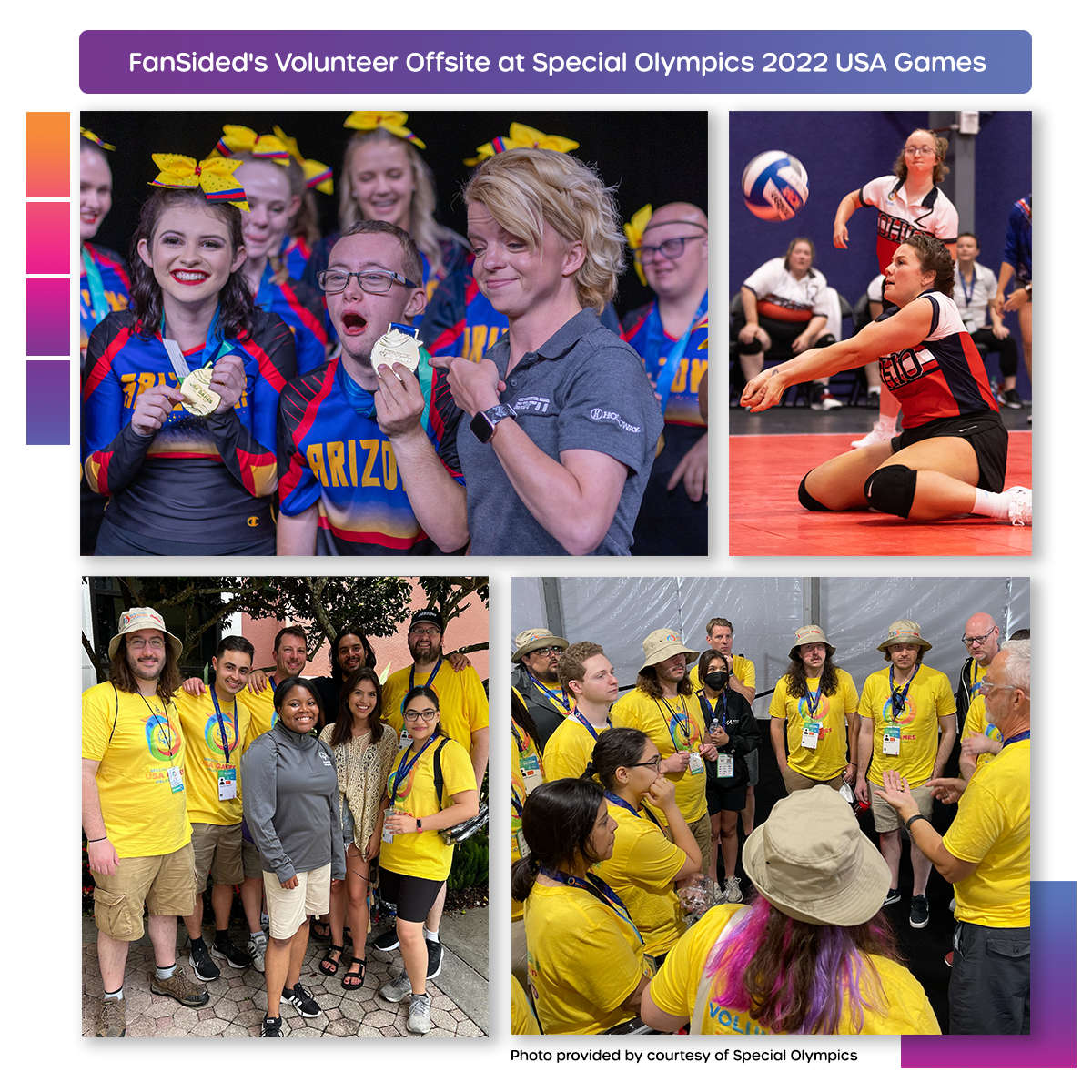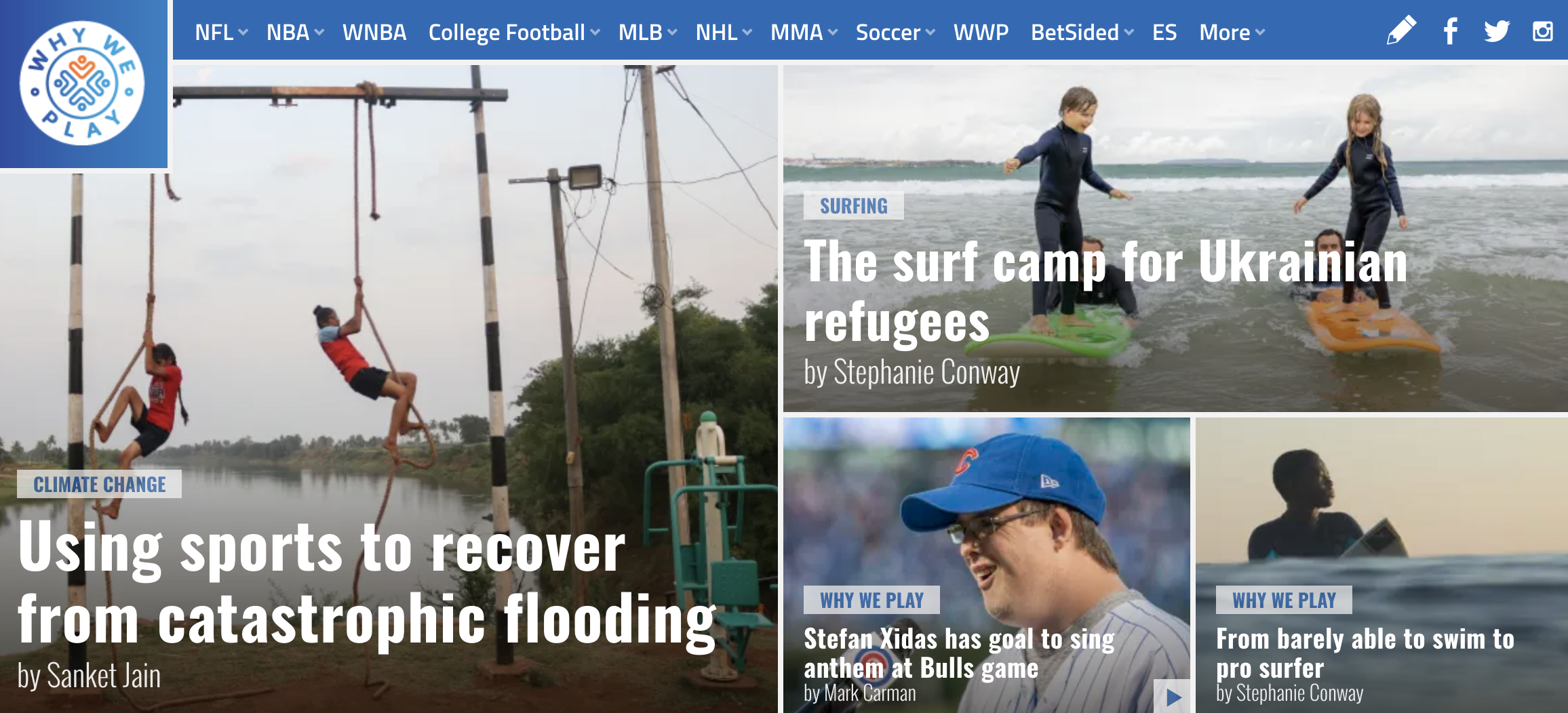What Businesses Can Learn From the Inclusion Revolution in Sports
What Businesses Can Learn From the Inclusion Revolution in Sports

By
![]() Zachary Best
•
4 min read
Zachary Best
•
4 min read
September 12, 2022
Inclusion is a highly active process. It entails creating and sustaining norms and practices grounded in fairness, respect, access, and opportunity.
Inclusive industries—and companies that exemplify these values—ensure that they’ve created a welcoming and equitable environment, where everyone experiences an authentic sense of belonging and opportunity to succeed.
Sports is a great example of an area that has made marked progress in fostering a greater sense of inclusion. When we talk about inclusion in sports, the conversations of the areas typically addressed are gender, race, and culture. By its very definition, inclusion must be examined from every angle, not just select categories. Forging partnerships as leaders in this industry creates the opportunity for us to address a key area that often remains minimized: intellectual disability. Starting the conversations with passion, purpose, and respect builds the bridges and foundations for leaders in the future.
Intellectual Disability Must Be Part of the Spectrum of Inclusion
Elevating awareness about intellectual disability and the importance of inclusion, not only in sports, but in the wider world, is one of my personal missions. As a father of a seven-year-old son with Down syndrome, I understand the important role we all can play in making others feel wanted, valued, and the best possible version of themselves.
Intellectual disability (ID) is a term used when a person has certain limitations in cognitive functioning and skills, including communication, social and self-care skills. These limitations can cause a child to develop and learn at a different pace than a typically developing child. Intellectual disability can happen any time before a child turns 18 years old, even before birth.
Intellectual disability is the most common developmental disability, affecting approximately 6.5 million people in the U.S and as many as 200 million people globally. It is significantly more common in low-income countries. In fact, the United Nations Development Program estimates that 80% of all people with disabilities live in low-income countries. Yet despite its prevalence, it remains an under-discussed topic in the global conversation around inclusion.
Just recently, the sports and entertainment network that I co-founded, FanSided, and our parent company, Minute Media, partnered with Special Olympics to shine a spotlight on why inclusivity in sports matters so much. While our goal has always been to create communities that celebrate uniqueness, this partnership is providing us with a real opportunity to be a champion for inclusion by sharing inspiring experiences of people with intellectual disabilities discovering new strengths through sport. We highlight these stories of inclusivity in sports in a dedicated section we built for these stories on FanSided, called Why We Play.

Recently, our entire team gathered at the 2022 Special Olympics USA Games in Orlando to volunteer and witness first-hand the incredible and unique stories of athletes with intellectual disabilities. Being able to experience the joy, passion, and persistence of this incredible group of athletes served as an important reminder of the true power of inclusion, what Special Olympics aptly calls the “Inclusion Revolution.” Importantly, it also taught us how to be more inclusive as a company.
What the Business World Can Learn From Inclusion in Sports
Sports and Special Olympics may be leading the revolution around inclusion, but inclusion must go beyond sports to create a society where everyone is welcomed and celebrated for their differences. Companies worldwide can learn a lot from how Special Olympics and other organizations have embraced people with intellectual and physical disabilities alike. Consider these important lessons:
Supportive Inclusive Culture
If you’ve ever witnessed Special Olympics games, you’ve experienced the depth of support that every athlete receives on their journey. Each competitor is made to feel like they can accomplish anything they set their mind to– and this self-belief can be a very powerful motivator.
Imagine if every member of your team at work was inspired by their organization's culture to achieve results at a high level. When we can create an environment where everyone feels truly supported, people are much more likely to feel comfortable taking risks, innovating, and experimenting. In fact, I believe that culture is a company’s single most powerful advantage. Companies with strong, supportive, and unified cultures will develop the best people.
Cultivating Empathy
While volunteering for Special Olympics, it was incredible to see the hard work, strength, and determination that athletes with intellectual disabilities needed to compete successfully in their chosen sports. It was equally wonderful to see every athlete treated with respect and empathy by their fellow athletes, coaches, and volunteers, which undoubtedly helped to spark the dedication seen from these athletes.
Similarly, today’s employees are craving meaning and purpose personally in their work. Modern workers are looking for workplaces that prioritize honesty and transparency and create an environment of psychological safety. In fact, according to a survey by Ernst & Young Consulting, 90% of US workers believe empathetic leadership leads to higher job satisfaction and 79% agree it decreases employee turnover.
When companies can lead with empathy, it can make a marked impact on employee satisfaction and well-being. Fostering an empathetic leadership culture leads to a more holistic approach to creating the unified, safe, and inclusive culture necessary for everyone.
Inclusive Hiring & Development
Special Olympics unified approach to sports is a powerful example of how an inclusive mission can bring together a wide pool of talented athletes from across the world. Through sports training and competitions, Special Olympics helps people with ID find joy, acceptance, confidence, and success while breaking down stereotypes about people with intellectual disabilities and creating a genuine lesson in inclusion. As their lives open up, athletes feel more empowered and ready to make use of their new abilities and talents.
This is an important reminder for businesses to take a closer look at their hiring policies to ensure that they are inclusive of those with ID. The fact that only 18% of people with ID are employed in the US is unacceptable. In the same way that companies look to hire people with different backgrounds, experiences, and perspectives, intellectual differences should also play a role in diverse hiring and retention strategies. There is so much to gain from creating a more diverse workforce and the power of the unified games shows us all the strengths that each individual person possesses and what those strengths can do for our organizations. Empowering others while also being with them during their successes and journey creates the authentic success we all desire both personally and professionally.
I’m proud to be part of a company committed to raising awareness about inclusivity's impact in sports and the wider world. The conversations will always continue and develop and expand. Our recent work with Special Olympics is just one of the ways we are trying to imagine a future where all people are included in all aspects of society. As we integrate what we learned through this partnership so far, we want to remind other business leaders that just like with sports, establishing and sustaining true inclusivity requires authentically committing, creating the necessary conditions, practicing and training regularly, and ultimately, executing as a team.
To learn more, check out a Hashtag Sports panel I participated in titled, “Choose to Include” where we discuss the topic of sports and workplace inclusivity in depth.
"Only 18% of people with intellectual disabilities are employed in the US."@zacharybest of @FanSided discusses sports and workplace inclusivity in this conversation with @MinuteMediaLTD ⤵️https://t.co/Hp3fAuYKyl pic.twitter.com/zDEREvInOR
— Hashtag Sports (@HashtagSports) September 12, 2022